Monday, December 28, 2009
Text Fwd: ROK-US Alliance Evolves, Challenges Linger
Korea Times
12-24-2009 19:30
ROK-US Alliance Evolves, Challenges Linger
By Jung Sung-ki
Staff Reporter
The year 2009 saw South Korea and the United States take a new step forward in their strategic military alliance, as they ironed out thorny issues of mutual concern, defense experts say.
North Korea's continued, provocative military actions on the peninsula also boosted the importance of the alliance, they added.
``Overall, the development of the alliance was fruitful this year, but there are still issues to be further fine-tuned,'' a defense researcher here told The Korea Times on condition of anonymity. He was apparently referring to Seoul's recent decision to redeploy troops to Afghanistan to help U.S. and other coalition forces fight against terrorists there as a case in point.
``As for the deployment to Afghanistan, which is hailed by the U.S. administration, there are still unresolved issues and questions, such as the appropriate number of troops and the timing of the deployment,'' the researcher said. ``The motion hasn't been approved by the National Assembly and we're not sure that the deployment can go ahead as scheduled in the first half of next year, when the U.S. will need troop support the most.''
The administration announced earlier this month that it would send 320 troops and 40 police officers to the Central Asian nation to accompany 100 Korean reconstruction workers to be dispatched to the country.
The decision was made after Washington had repeatedly requested Seoul to contribute troops to Afghanistan. The presidential office said the deployment would help to further strengthen ties with Washington as well as increase the country's global profile to match its economic power.
Some in the military argued a brigade-level unit should be dispatched for full-fledged anti-terror operations. But Cheong Wa Dae was wary of possible public backlash over a large-scale troop deployment.
Opposition lawmakers have opposed the deployment, worrying the country could become a target of terror attacks. The passage of the motion is expected to be delayed until February.
Change in USFK Roles
A key challenge ahead for the alliance is Seoul's smooth acceptance of the U.S. Forces Korea's (USFK) strategic flexibility, the researcher said.
In the early 2000s, the U.S. military initiated the idea of changing the mission of American forces abroad from stationary ones focused on defending host nations to a rapid-deployment strategy in which troops are swiftly dispatched to parts of the world where the U.S. faces conflict.
Seoul and Washington agreed to the altering of the role of U.S. forces in Korea in 2006. The plan has not been fully implemented amid concerns that it could weaken the Korea-U.S. combined defense posture against North Korea.
In recent months, U.S. military leaders repeatedly mentioned the need for the scheme, in line with the planned longer, family-accompanied tours by U.S. forces in Korea.
Speaking at a forum organized by the Center for Strategic and International Studies (CSIS) in Washington, USFK Commander Gen. Walter Sharp said, ``We want the troops to be regionally engaged and globally deployed, but we'll never forget that our No. 1 responsibility in Korea is to defend the Republic of Korea.
``Sometime in the future we could have forces that could, with consultations between both nations, be able to be deployed in different places around the world,'' he said.
The researcher said the strategic flexibility of U.S. troops overseas is an unavoidable ``trend.''
``The strategic flexibility is not a matter of conflict but a matter of consultation or coordination,'' he noted. ``It's time for us to think of what we can get from the U.S. strategic flexibility, not what we can lose from it.
``Given that the agreed 21st strategic alliance partnership calls for boosting bilateral cooperation in global issues, we can't and shouldn't deny the strategic flexibility mechanism,'' said the expert. ``The Lee government should think of how it will get this message across to the public and prevent unnecessary controversy over this issue.''
In June, Presidents Lee Myung-bak and Barack Obama issued the Joint Vision for the ROK-US Alliance at the end of their summit in Washington, D.C. The plan calls for building a broader alliance in the realms of politics, economy, culture and other areas, in addition to the security arena.
Nuclear Deterrence
In the summit, President Obama reaffirmed that Washington will continue to provide an extended nuclear umbrella to South Korea in response to North Korea's increasing nuclear threats.
The pledge was stipulated in a joint communique of the defense ministers from the two nations at the Security Consultative Meeting (SCM) in October in Seoul.
``I think 2009 has been extremely important for the alliance because North Korea has repeatedly demonstrated the importance of the alliance during a period where some key people in both the ROK and the United States seem to be doubting its importance,'' Bruce Bennett, a senior defense analyst at the Rand Corporation, a U.S. non-profit policy think tank, wrote in an e-mail.
North Korean insistence on retaining its nuclear weapons and being designated a nuclear power makes the ROK-US alliance ever more critical for the security of South Korea and the region, he said.
``As a result, I found the ROK-US Joint Vision of the Alliance statement to be a key development. I was especially struck by the US commitment to extended deterrence, including its nuclear umbrella,'' said the analyst.
Bennett said North Korean leader Kim Jong-il's illness early in the year implied that succession could come soon, and the failure of Kim Jong-il to clearly designate a successor suggests that a third-generation Kim family succession could fail.
This view was reinforced by North Korea's provocations — its missile launches and nuclear test — in the first half of the year, which apparently stemmed from Kim Jong-Il's deteriorating health and the need to demonstrate his power, he analyzed.
``If anyone in the ROK was feeling safe from North Korean nuclear weapons, they should have developed a different perspective after May 25 (the nuclear test), and worried about how the ROK government was going to protect them,'' the analyst said.
``While most experts have focused on Kim Jong-Il's efforts to appear peaceful and cooperative in the second half of this year, I think there have been clear signs even in this period of the need for our alliance, given North Korean instability,'' he said.
North Korea's poor crop yield this year likely means that many North Koreans could face famine over the coming year, increasing instability in the communist state, he added, saying the North Korean currency revaluation early this month was a major event that hurt the North Korean elite.
This action is likely to destabilize the North Korean government, increasing the chances of the regime collapsing, he said.
gallantjung@koreatimes.co.kr
Subscribe to:
Post Comments (Atom)


![[URGENT PLEA: In Update] EMERGENCY in GANGJEONG Since AUG. 24, 2011](http://2.bp.blogspot.com/-3iz8k-USXVY/TlmRYhhIYtI/AAAAAAAAL2c/9dbF85ZIkIs/s227/jejusit.jpg)
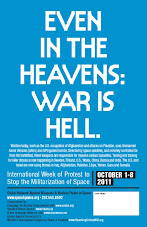
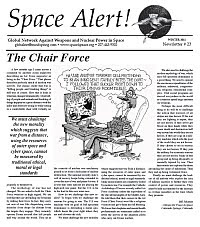

![[Solidarity from Japan for the Jeju] 253 individuals and 16 groups/organizations](http://2.bp.blogspot.com/_gnM5QlRx-4c/TR_YeNVE1yI/AAAAAAAAHWQ/ARyf6oQN0S0/S227/jeju_12_10j.jpg)
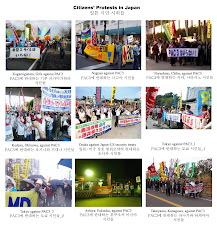
![[Translation] Korean organizations' statement: Immediately cancel the joint ROK-US drill Nov 26](http://2.bp.blogspot.com/_gnM5QlRx-4c/TPOE8VKXHFI/AAAAAAAAGlM/8lryt-8sFjc/S227/1.jpg)
![HOT! [Hankyoreh Hani TV] Beneath the Surface: the investigation into the sinking of the Cheonan](http://4.bp.blogspot.com/_gnM5QlRx-4c/TOI83qht8aI/AAAAAAAAGXU/22SW6Q5ntV8/S227/HaniTV%2BCheonan.gif)
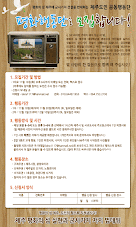
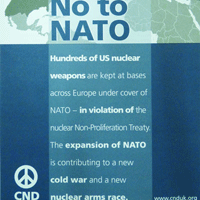

![[Translation]Statement against illegal inspection and unjust lay-off by the Kunsan USAFK!(Nov_2010)](http://4.bp.blogspot.com/_gnM5QlRx-4c/TOPLsVkZMqI/AAAAAAAAGZs/3YnnckIyAaY/S227/gunsan%2Bprotest.gif)
![[Translation] Korean organizations' statement against dispatching special force to the UAE on Nov.](http://4.bp.blogspot.com/_gnM5QlRx-4c/TOP95zHXlCI/AAAAAAAAGak/E0Ug1XtUFfM/S227/antiwarpeace.jpg)
![[Translation] Stop, Joining MD!: South Korean activists' statement and writing on Oct. 25, 2010](http://3.bp.blogspot.com/_gnM5QlRx-4c/TOP7Es4_2sI/AAAAAAAAGac/eWVMPD-U4p0/S227/StopMD.jpg)
![[In Update] People First, NO G-20 (Nov. 6 to 12, Korea)](http://2.bp.blogspot.com/_gnM5QlRx-4c/TJd53XBzHlI/AAAAAAAAFQo/ldO9JPE3eqo/S227/left21_G20.jpg)
![[International Petition] Stop US helipad plan in Okinawa to save great nature](http://4.bp.blogspot.com/_gnM5QlRx-4c/TKC2AHRNzBI/AAAAAAAAFUo/yGWXODTw_uM/S227/yanbaru_w.jpg)

![[Global Network] against the first launch of Quasi-Zenith Satellite, Japan, on Sept. 11, 2010](http://4.bp.blogspot.com/_gnM5QlRx-4c/TIowa1boy4I/AAAAAAAAFDI/82rAi98uq-c/S227/Qzss-45-0_09.jpg)

![[In update] Some collections on the Koreans’ protests against the sanction & war on Iran](http://4.bp.blogspot.com/_gnM5QlRx-4c/TJMvke6t8zI/AAAAAAAAFO4/tamQ8LUnOOA/S227/No+Sanction+on+Iran.jpg)
![[Three International Petitions] to End the Korean war and peace treaty(or peace resolution)](http://1.bp.blogspot.com/_gnM5QlRx-4c/THef7bzWxYI/AAAAAAAAE44/wwdzSDfYhdw/S227/border.jpg)
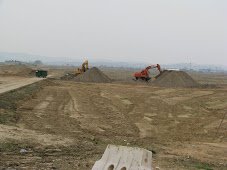


![[Collection of Documents] No Base Learning and Solidarity Program_Korea(June 14 to 20, 2010)](http://1.bp.blogspot.com/_gnM5QlRx-4c/TCTvVuN8NeI/AAAAAAAAEek/8vBJVaHdk10/S227/No-Base-banner.jpg)
![Site Fwd:[John Hines] A U.S. Debate coach’s research trip on the Issues of Korea](http://3.bp.blogspot.com/_gnM5QlRx-4c/TINCO36mzzI/AAAAAAAAE_w/Rds12NcBOXM/S227/Jeju-Peace-Tour.jpg)


![[News Update] Struggle Against the Jeju Naval Base since Jan. 18, 2010](http://1.bp.blogspot.com/_gnM5QlRx-4c/S1vvWaP25uI/AAAAAAAACkg/QvpW1tgOlKM/S226/scrum1.jpg)


![[Urgent] Please spread the Letter!: There was no Explosion! There was no Torpedo! (May 26, 2010)](http://4.bp.blogspot.com/_gnM5QlRx-4c/S_9JmsKEU7I/AAAAAAAAEP8/sAWjSPqxzUI/S227/grounded.jpg)
![Text Fwd: [Stephen Gowans]The sinking of the Cheonan: Another Gulf of Tonkin incident](http://1.bp.blogspot.com/_gnM5QlRx-4c/TAL_FtYKQ-I/AAAAAAAAERE/NEEMijiEcRM/S227/lee-myung-bak.jpg)
![[Japan Focus]Politics in Command: The "International" Investigation into the Sinking of the Cheonan](http://1.bp.blogspot.com/_gnM5QlRx-4c/TBMJ2syJzyI/AAAAAAAAEZU/uTYZccU5vyk/S227/wen_jiabao_and_lee_myungbak.png)
![[Japan Focus] Who Sank the SK Warship Cheonan? A New Stage in the US-Korean War and US-China](http://2.bp.blogspot.com/_gnM5QlRx-4c/S_iQ2vE5ZpI/AAAAAAAAEOU/Oo1SPcAe8FE/S227/buoy_map.gif)
![[Updated on 12/13/10] [Translation Project] Overseas Proofs on the Damages by the Military Bases](http://4.bp.blogspot.com/_gnM5QlRx-4c/S-qSj59gPLI/AAAAAAAAEGM/mwjlFtPE-jo/S227/missile.jpg)
![[International Petition] Close the Bases in Okinawa](http://3.bp.blogspot.com/_gnM5QlRx-4c/S8-z3DYNwNI/AAAAAAAADo4/OswTSchK09M/S227/2.jpg)

![[In Update]Blog Collection: No Korean Troops in Afghanistan](http://4.bp.blogspot.com/_gnM5QlRx-4c/SwnlLD9IewI/AAAAAAAAB9E/oUPssnpNidA/S226/No-Troops-to--Afghanistan.jpg)
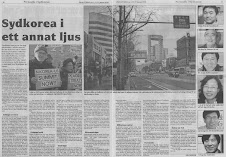

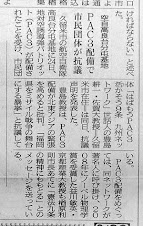

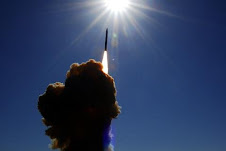


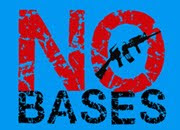
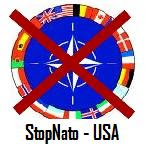


No comments:
Post a Comment